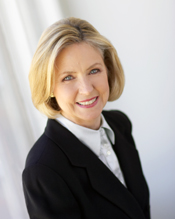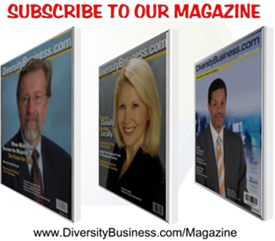 |
All rights reserved.
 Print this Article Print this Article
 Email this Article Email this Article
 Submit a Story Submit a Story
 Purchase/License Purchase/License
 More Articles More Articles
|
|
|
Bias-Busting: It Can Be Done: by Sondra Thiederman, Ph.D.
|
SOUTHPORT, CT –/ -- DiversityBusiness.com /- “It’s hopeless,” my friend Jim told me, “We can’t stop bias. We’ll just have to wait for this generation to die off and a new one to come along.” Even a man as erudite as broadcaster Edward R. Murrow believed we could never rid ourselves of biases; we could only learn to work around them.
 Fortunately, both Murrow and Jim are wrong. Of course some people refuse to change. For each of those, however, there are millions who, given the right skills and enough determination, can correct their distorted vision and see the world and its people more clearly. Fortunately, both Murrow and Jim are wrong. Of course some people refuse to change. For each of those, however, there are millions who, given the right skills and enough determination, can correct their distorted vision and see the world and its people more clearly.
Those who argue that biases – defined here as “inflexible beliefs about particular categories of people” – can’t be fixed say that they are an intrinsic part of human nature and, therefore, impossible to eradicate. Every time I hear the phrases “human nature” or “We’re only human,” my hackles go up. To say that something is “only human” implies that to be human is to be incapable of change; it connotes that there’s not a darn thing we can do to improve ourselves or our attitudes. I am more optimistic. I, and most researchers in the field, believe that through awareness, knowledge, and plain old-fashioned effort we can, at the very least, reduce our biases to the point at which they have a minimal influence on our lives and work.
Do You Like Asparagus?
One researcher who believes in the power of “plain old fashioned effort” is a professor of psychology at Princeton University named Susan Fiske. Professor Fiske’s belief that there is a lot we can do about bias grew from her study of the human brain. Not to get too technical, but basically what Fiske did was record what was going on in the brain while showing pictures of black faces to white volunteers. Specifically, she used magnetic resonance imaging (MRI) to record the presence or absence of spikes in the brain’s alarm centers as each picture was shown. The question being asked was whether the volunteers – as measured by the spike in brain activity – exhibited the bias that black people were in some way threatening. There was more to Fiske’s methodology, however, than simply showing pictures and measuring the reaction. She wanted to discover, not only if there was a reaction, but also if there was something we can do to prevent it. Her theory was that we can diffuse the bias by deliberately focusing our thoughts on the individual characteristics of the person in front of us, not just on the group to which they belong. Fiske tested this by instructing her volunteers to speculate, as each face was shown, whether or not the person in the picture was fond of asparagus. A silly question? Of course, but that silly question—that involvement of the brain in looking at the person as an individual, not just as a member of a group—had an almost magical impact on the observer’s response: The usually-seen spike in the alarm center simply disappeared.
The researchers concluded that the brain failed to send out a message of fear because of the state of mind the instructions created. Volunteers perceived no threat because, in their minds, there was no group by which to be threatened. They were not faced by a monolithic and frightening black population, but by individual human beings with individual tastes (in vegetables, no less!).
 Fiske’s work serves up a large helping of good news. She proved that, despite the brain’s hardwired impulse to categorize, we can use the brain against itself to derail that impulse. It is possible to change our thinking so that we see people as individuals, not just as members of a group. In short, our biases—our “inflexible beliefs”—weaken when faced with the task of evaluating someone individually. Fiske’s work serves up a large helping of good news. She proved that, despite the brain’s hardwired impulse to categorize, we can use the brain against itself to derail that impulse. It is possible to change our thinking so that we see people as individuals, not just as members of a group. In short, our biases—our “inflexible beliefs”—weaken when faced with the task of evaluating someone individually.
What You Can Do
The other good news is that Fiske’s discovery points directly to what we each can do to reduce our own biases and, thereby, see colleagues, team mates, and vendors more accurately. It is simple: Consciously ask questions about the individual rather than the group to which they belong.
Take biases toward homeless people for example. Many otherwise sensible human beings hold the bias that “All homeless people are substance abusers.” Once that bias is in place, there is little to keep the believer from drawing that conclusion about every person they encounter slumped on the sidewalk, sleeping under blankets in an alcove, or begging for handouts.
What would happen, however, if that same biased person had the opportunity to work closely with a group of homeless people? She might, for example, volunteer to serve Thanksgiving dinner at a soup kitchen where, in order to do the job properly, she would have to focus on the needs and preferences of each individual. One diner might want mashed potatoes, another yams. One might hesitate to ask for more; it is the server’s job to notice and overcome that hesitation. Another might seem rude and demanding; the server must assess if that rudeness is threatening or just evidence of a person who has difficulty communicating.
The goal of doing all she can to make Thanksgiving as pleasant as possible for every diner forces our server into seeing each person as an individual. That goal and the questions she must ask to achieve it deflect her ability to see this group of homeless people as all alike.
Too Good to Be True?
Fiske’s research shows us that it is time for more goal-oriented contact with people who are different from ourselves. During that contact, we need to encourage both ourselves and others to substitute questions that focus on individuality for questions about a group. We might, for example, begin to ask things like, “What does this individual like?”; “What does he need?”; “What will motivate this particular woman?” These questions, as you can see, are nothing more than broader versions of Dr. Fiske’s seemingly silly query, “Does this person like asparagus?”
It is, I realize, tempting to say something like, “This is too simple, too good to be true. Bias reduction has to be more complicated than that.” Of course, in some cases, it is “more complicated than that.” But, often, especially with the kind of biases that most of us hold, it is in fact that simple.
About DiversityBusiness.com
Launched in 1999, DiversityBusiness, with over 50,000 members, is the largest organization of diversity owned businesses throughout the United States that provide goods and services to Fortune 1000 companies, government agencies, and colleges and universities. DiversityBusiness provides research and data collection services for diversity including the "Top 50 Organizations for Multicultural Business Opportunities", "Top 500 Diversity Owned Companies in America", and others. Its research has been recognized and published by Forbes Magazine, Business Week and thousands of other print and internet publications. The site has gained national recognition and has won numerous awards for its content and design. DiversityBusiness reaches more diverse suppliers and communicates more information to them on a more frequent basis then all other organizations combined. We also communicate with mainstream businesses, government agencies and educational institutions with information related to diversity. Our magazine reaches over 300,000 readers, a monthly e-newsletter that reaches 2.4 million, and website visitors of 1.2 million a month. It is a leading provider of Supplier Diversity management tools and has the most widely distributed Diversity magazine in the United States. DiversityBusiness.com is produced by Computer Consulting Associates International Inc. (CCAii.com) of Southport, CT. Founded in 1980.
|
|
All rights reserved.
 Print this Article Print this Article
 Email this Article Email this Article
 Submit a Story Submit a Story
 Purchase/License Purchase/License
 More Articles More Articles
|
| |
|
 |
|

